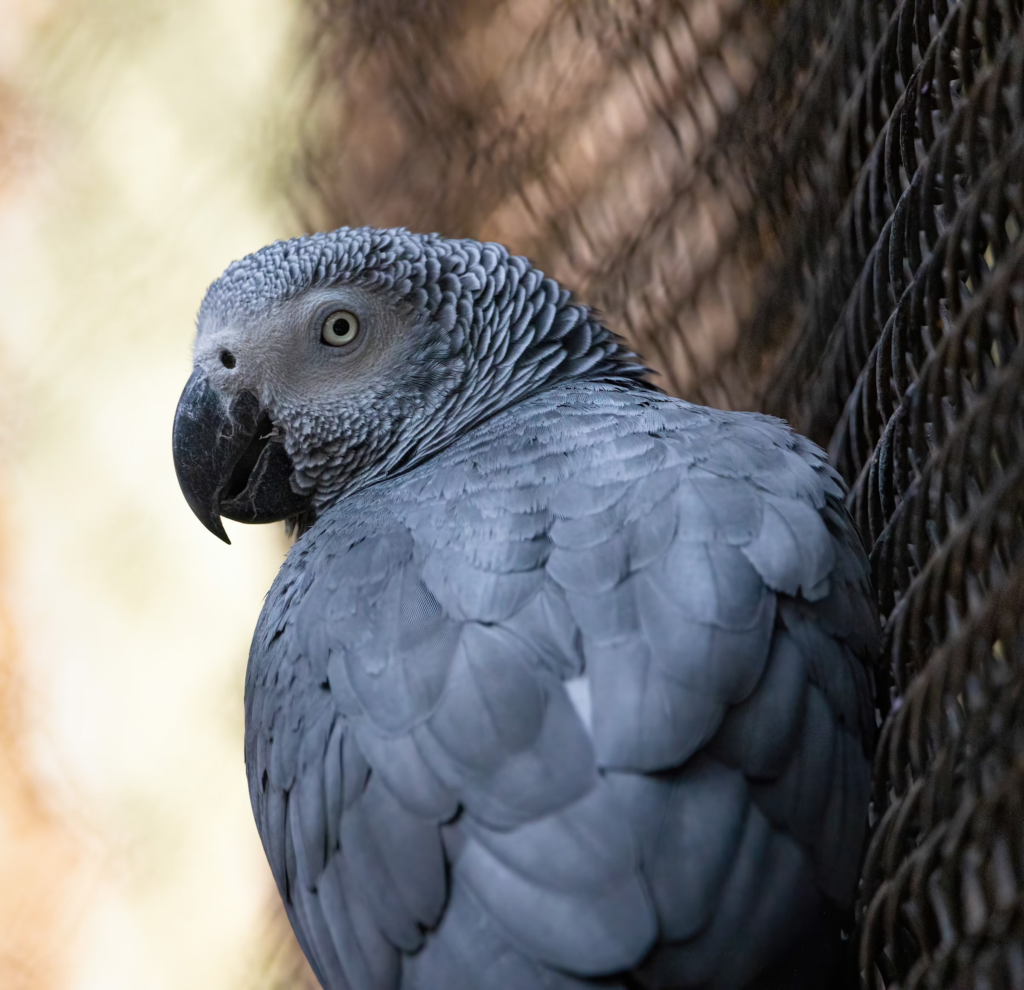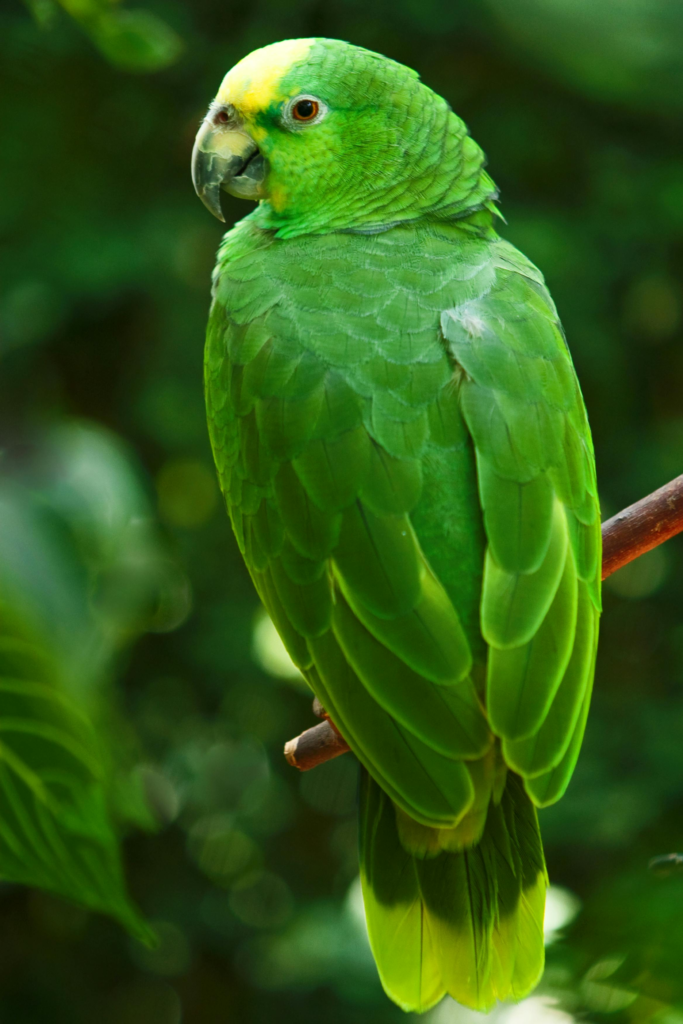
When it comes to emotional support animals (ESAs), most people think of dogs or cats. However, parrots can also make excellent companions for those seeking emotional support. With their vibrant personalities, intelligence, and ability to bond deeply with their owners, parrots can provide the same comfort, love, and emotional relief as traditional ESAs. But with hundreds of parrot species to choose from, it’s essential to find the one that suits your needs and lifestyle. So, what is the best parrot for emotional support? Below are some of the top contenders, based on temperament, size, and ease of care.
1. African Grey Parrot

The African Grey is widely regarded as one of the most intelligent parrot species, often compared to the intellectual capacity of a young child. These parrots are known for their ability to mimic speech, making them highly interactive and responsive to their owners. An African Grey can pick up on their owner’s emotions, making them excellent companions for emotional support. Their high intelligence allows them to engage in stimulating conversations, helping ease feelings of loneliness, stress, or anxiety. However, their intelligence requires mental stimulation and consistent social interaction, so they are best suited for someone who can devote time to their care.
2. Cockatiel
If you’re looking for a smaller, less demanding parrot for emotional support, the Cockatiel is a great option. Cockatiels are gentle, affectionate, and relatively easy to care for, making them a popular choice for first-time bird owners. These birds are playful and can form strong bonds with their humans. They often enjoy being held and stroked, which can be soothing for someone experiencing anxiety or depression. While they aren’t as talkative as some of the larger species, their gentle whistling and chirping can be comforting.
3. Budgerigar (Budgie)

Budgerigars, commonly known as Budgies, are another small parrot species that make excellent emotional support animals. Their compact size, cheerful personality, and easy maintenance make them a favorite among bird enthusiasts. Budgies are known for their playful nature, and with a little training, they can learn to mimic speech. They thrive on interaction and can bring joy to their owners through their lively behavior. Because they are smaller, they’re also easier to accommodate in homes with limited space. Budgies are perfect for those seeking a companion that requires less intensive care but still provides emotional connection.
4. Quaker Parrot
Quaker Parrots, also known as Monk Parakeets, are highly social and affectionate birds. They are known for their talking ability and enjoy mimicking human speech and sounds. Their friendly nature makes them ideal for individuals needing an emotional connection. Quakers can be playful, and they enjoy activities such as puzzle-solving or playing with toys, which can be emotionally stimulating for their owners. However, Quakers can be territorial, so early socialization is crucial.
5. Amazon Parrot

Amazon Parrots are well-known for their vivid colors and friendly personalities. They are highly social and enjoy interacting with their owners. Amazons are great at learning tricks and mimicking speech, making them entertaining companions. Their lively and affectionate nature makes them suitable for individuals who want a bird that offers a lot of interaction. However, Amazon Parrots require mental stimulation and plenty of exercise, so they are best for people who can invest time in their care.
Considerations for Choosing a Parrot
When choosing the best parrot for emotional support, there are several factors to consider:
- Size: Larger parrots like African Greys and Amazons require more space and care, while smaller species like Budgies or Cockatiels are easier to manage.
- Temperament: Different species have varying temperaments. Some parrots are more independent, while others thrive on constant interaction. Understanding your own emotional needs can help in selecting the right bird.
- Time Commitment: Parrots can live for several decades and require long-term commitment. Larger, more intelligent parrots also need significant mental stimulation, so consider your ability to provide for their long-term needs.
- Noise Level: Parrots are known for their vocalizations. While some species are quieter than others, all parrots make noise. If you live in an apartment or a noise-sensitive environment, this is something to keep in mind.
Conclusion
The best parrot for emotional support ultimately depends on your personal needs, lifestyle, and ability to care for a bird. African Greys and Amazon Parrots are ideal for those seeking an intelligent, interactive companion, while smaller species like Cockatiels and Budgies are great for individuals who prefer a more low-maintenance pet. No matter which species you choose, a parrot can provide the emotional connection and companionship that many people seek in an emotional support animal.
Know more about service animals with these articles:
- Best Practices for Service Animals on Campus
- Can Pets Help Children With Their Emotional and Social Skills?
- Can Emotional Support Animals Alleviate Social Phobia?
- Service Dogs Also Need Stress Relief: Tips for Handlers
Do you own an assistance animal? Register your pet today.
The Service Animal Registry of California invites you to have your assistance animal registered in order to designate its status. We also encourage you to take our online classes so you can be fully aware of your rights and gain more knowledge about your support animal.
Finally, we present to you our book entitled, “ASSISTANCE ANIMAL LAWS: LEARN YOUR RIGHTS REGARDING SERVICE ANIMALS, EMOTIONAL SUPPORT ANIMALS, THERAPY PETS, AND OTHER DOGS, CATS, AND ASSISTANCE ANIMALS” to provide you with a complete education on assistance animals.
Purchase your copy of the book by clicking the image below.

